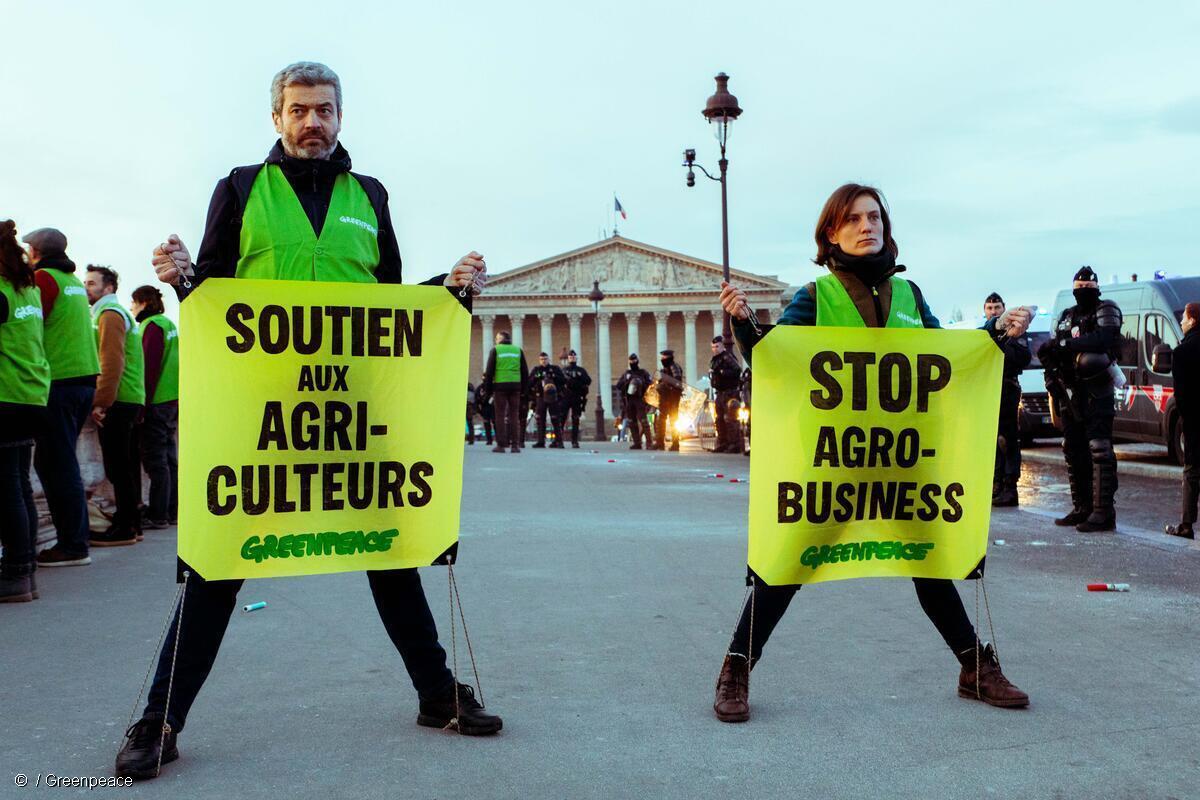Want to do something good for farmers? Stop the EU-Mercosur trade deal
Greenpeace | 27 November 2024
Want to do something good for farmers? Stop the EU-Mercosur trade deal
by Marco Contiero
Marco Contiero is agriculture policy director at Greenpeace EU.
In the last weeks, farmers across Belgium, Poland and France took to the streets of Paris, Brussels and dozens of other cities. With tractors and manure, they expressed their strong opposition to a trade deal between the EU and the “Mercosur” countries: Brazil, Argentina, Paraguay and Uruguay.
Farmers are some of the most vocal opponents of this free trade agreement. Many of them are concerned about the impact that it would have on their livelihoods. And they are right.
A majority of farmers in the EU are struggling, many of which are small and medium farms which should be the backbone of European agriculture. But because they operate in a fundamentally unjust system, hundreds of them are going out of business every single day.
These farmers find themselves squeezed by international agrochemical, food and retail corporations, who charge them high prices for the inputs farms need while paying them a pittance for their products. In addition, they lack access to finance as it is the large farming operations that capture the majority of public and private finance.
So it’s no wonder that farmers don’t want the unfair competition that the EU-Mercosur trade agreement would expose them to.
Under the deal, the EU would increase imports of beef, poultry, sugar, honey and other agricultural products from South America, in exchange for more EU exports of cars, pesticides and plastics.
The agreement clearly serves the interests of large agri-food companies, and might be the last nail in the coffin for a dying breed of small and medium food producers in Europe.
The EU already imports beef and animal feed from Mercosur, and this could significantly increase under the EU-Mercosur deal: 99,000 extra tonnes of beef, 180,000 tonnes of poultry, 190,000 tonnes of sugar, 1 million tonnes of maize every year.
The South American bloc’s regulations are different to the EU’s in key areas like pesticides, antibiotics and animal welfare. Many pesticides banned in the EU are still widely used in Brazilian industrial agriculture, for instance, and an official audit recently showed that Brazil can’t guarantee that its meat exports are free of harmful hormones that the EU forbids.
Small and medium scale European farms will thus be exposed to unfair competition by the EU-Mercosur deal, undercut by cheap and sometimes toxic imports from factory farming giants.
The agreement will also further fuel the destruction of precious ecosystems. Every day, gigantic areas of rainforest in the Amazon and neighboring regions give way to cattle pastures and soya cultivation. Directly and indirectly, this deal will drive the destruction of nature in South America. Its environmental provisions are weak and the increase in agricultural exports is highly alarming. In parallel, the EU has been taking steps to delay the much needed regulation of deforestation-risk commodities.
So who is this deal good for? It’s clearly not for the majority of European farmers. Instead, it’s tailored to the wishes of industrial export oriented agribusiness from South America on one hand, and the German car and chemical industry on the other. These powerful forces have aligned, to the detriment of small food producers, sustainable farmers, agricultural workers, consumers and precious ecosystems.
The conservative European People’s Party is the main political force in Brussels pushing for the adoption of this unfair trade deal. They would no doubt say that everything they are doing in Brussels is to help farmers. But farmers see through their hypocrisy.






